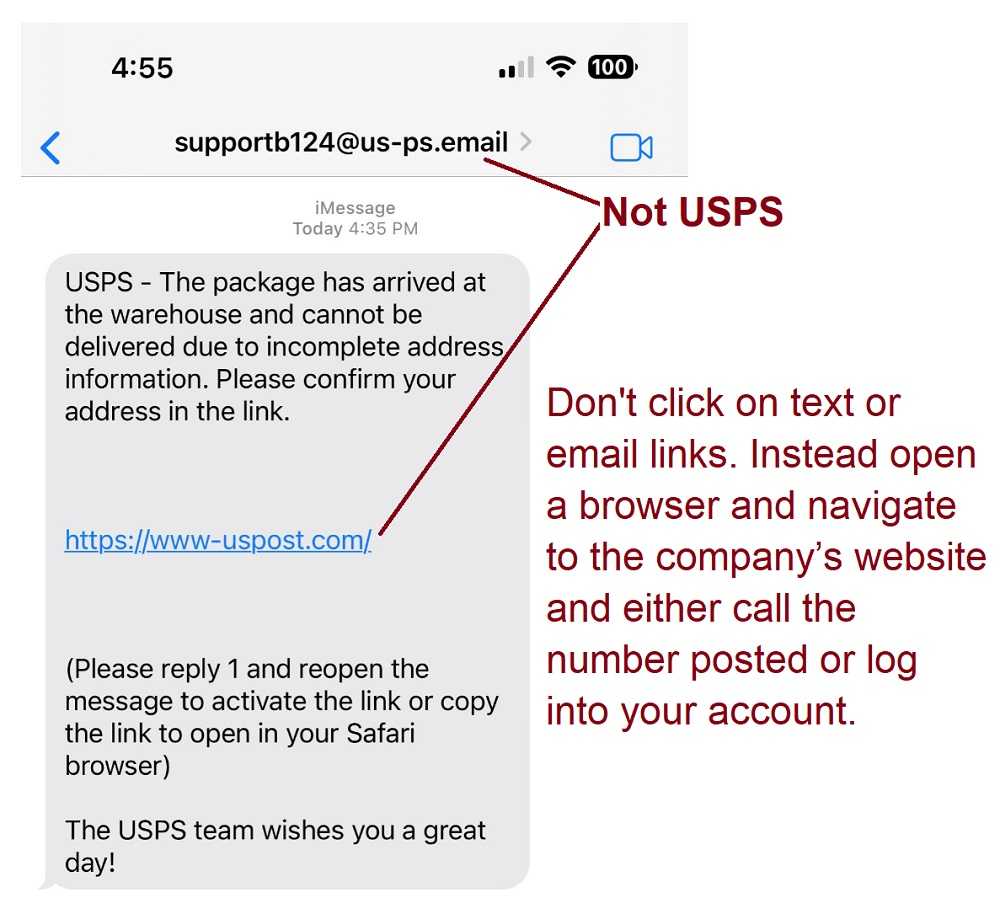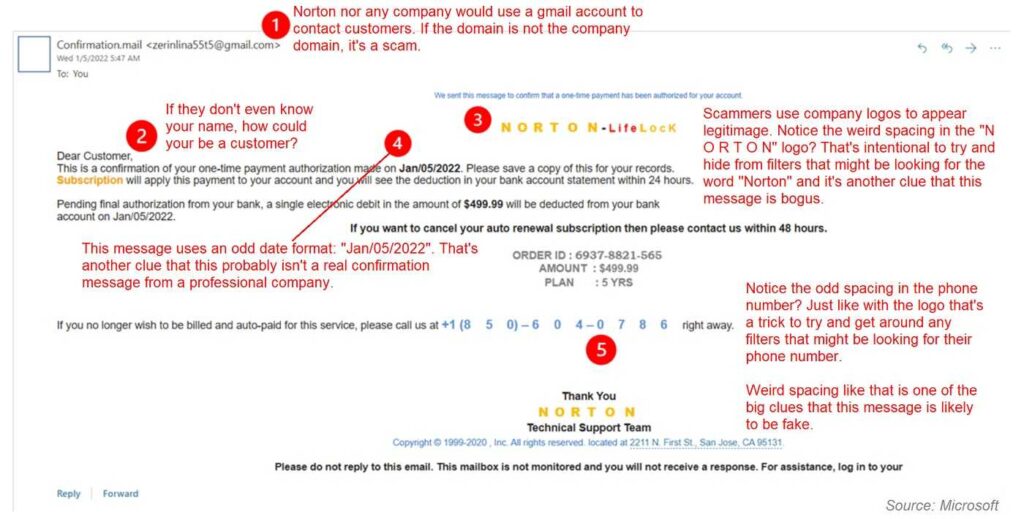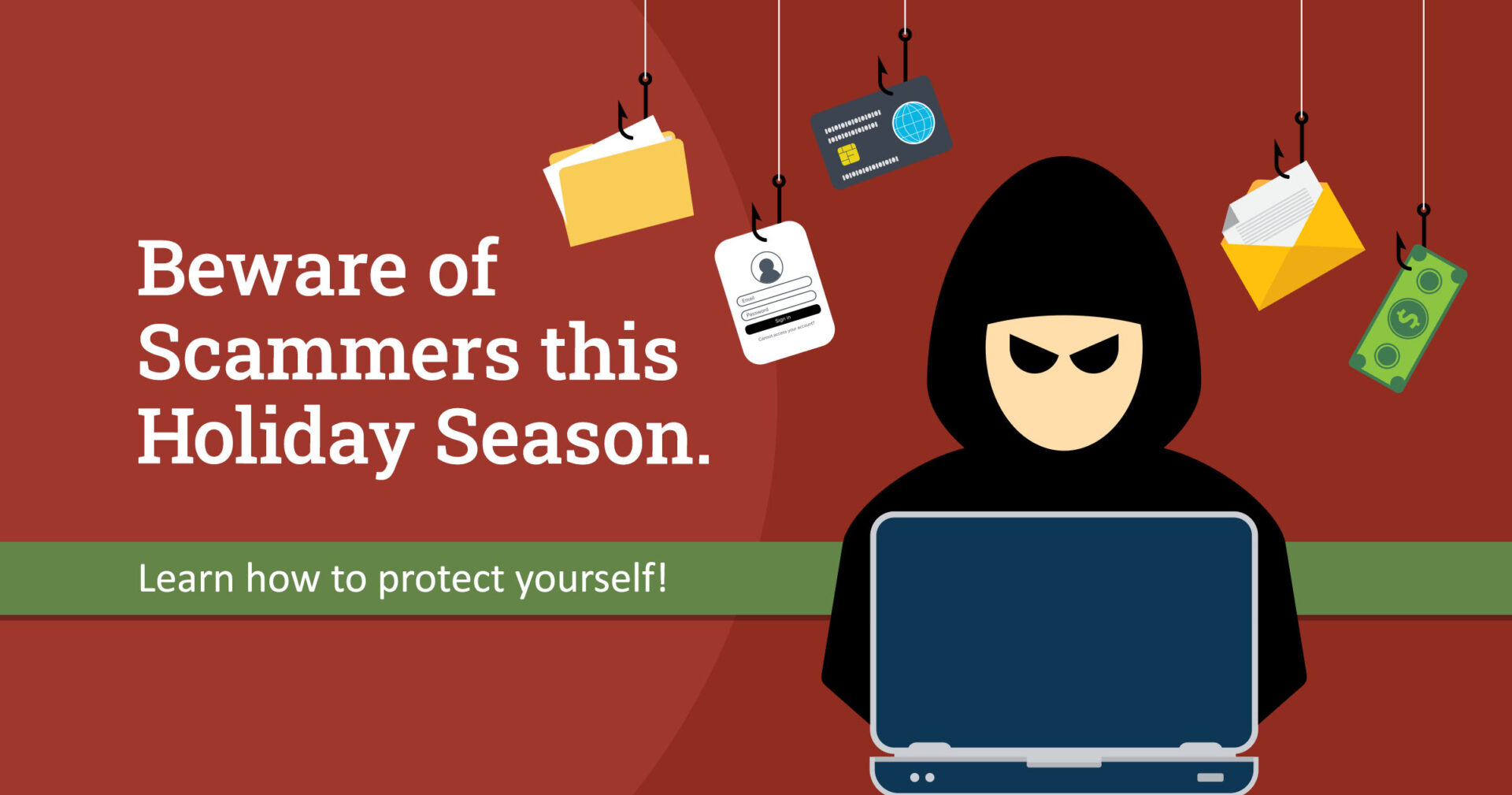Artificial intelligence (AI) is also helping scammers appear more legitimate. Some of the top scams are listed below to help you have a scam-free holiday season.
Phony Shipping Notices
Whether you’re expecting a delivery or not, scammers will alert you via phone, email, or text there’s a package on the way or you missed a delivery. They’ll claim to be from FedEx, the post office, or other package delivery service sending you a link to track the fake delivery. The links lead to a spoofed website or they can download malware. Some ask for a credit card number or other PII for the bogus delivery.

Missing Packages
Porch Pirates are out in full force looking for package deliveries left on doorsteps and other obvious places. They love driving around neighborhoods looking for unattended deliveries. It’s free stuff for these grinch-pirates but it’s a headache for you when you’re not at home. Getting stolen merchandise replaced or refunded can take time you don’t have for the gift-giving season.
TIPS: Instruct deliveries to a side or back door when possible or send to a friend or neighbor you know will be home. Home security cameras catch Porch Pirates in the act for law enforcement. Package tracking using the legitimate delivery service website can help with delivery days and times to be on the lookout. Use delivery options like Amazon’s Key or Hub Lockers or pick up the item from the merchant when possible.
Fake Order Notices
Emails arrive about a purchase you’ve made from a retailer or third-party payment like PayPal, to verify your order. The purchase amount is enough to make you panic and you’ll want to resolve the matter quickly. The email includes a link or phone number to dispute the order, and scammers know you’ll likely follow it. The link can go to a spoofed website to steal your PII, or it will outright ask for your payment card and login information so the scammer can go a shopping spree.

TIPS: Don’t follow links or provide sensitive information. Instead, go directly to the merchant’s true website and make inquiries from there. Check your payment card for unauthorized charges. If there isn’t anything in either of those locations, it’s likely a scam.
Keep In Mind…
Sob-sters…Appeals for donations including with GoFundMe can be bogus, so if you’re giving this holiday season, stick with well-known or local charities…
Relatives needing fast financial help…Calls from a family member asking for a money wire to get out of jail, for instance, call a family member to confirm it’s legit. Emails with similar scenarios, especially asking for money via gift cards, is the sign of a true scam…
You can always check our Security Zone for information on the latest scams and other helpful articles.



